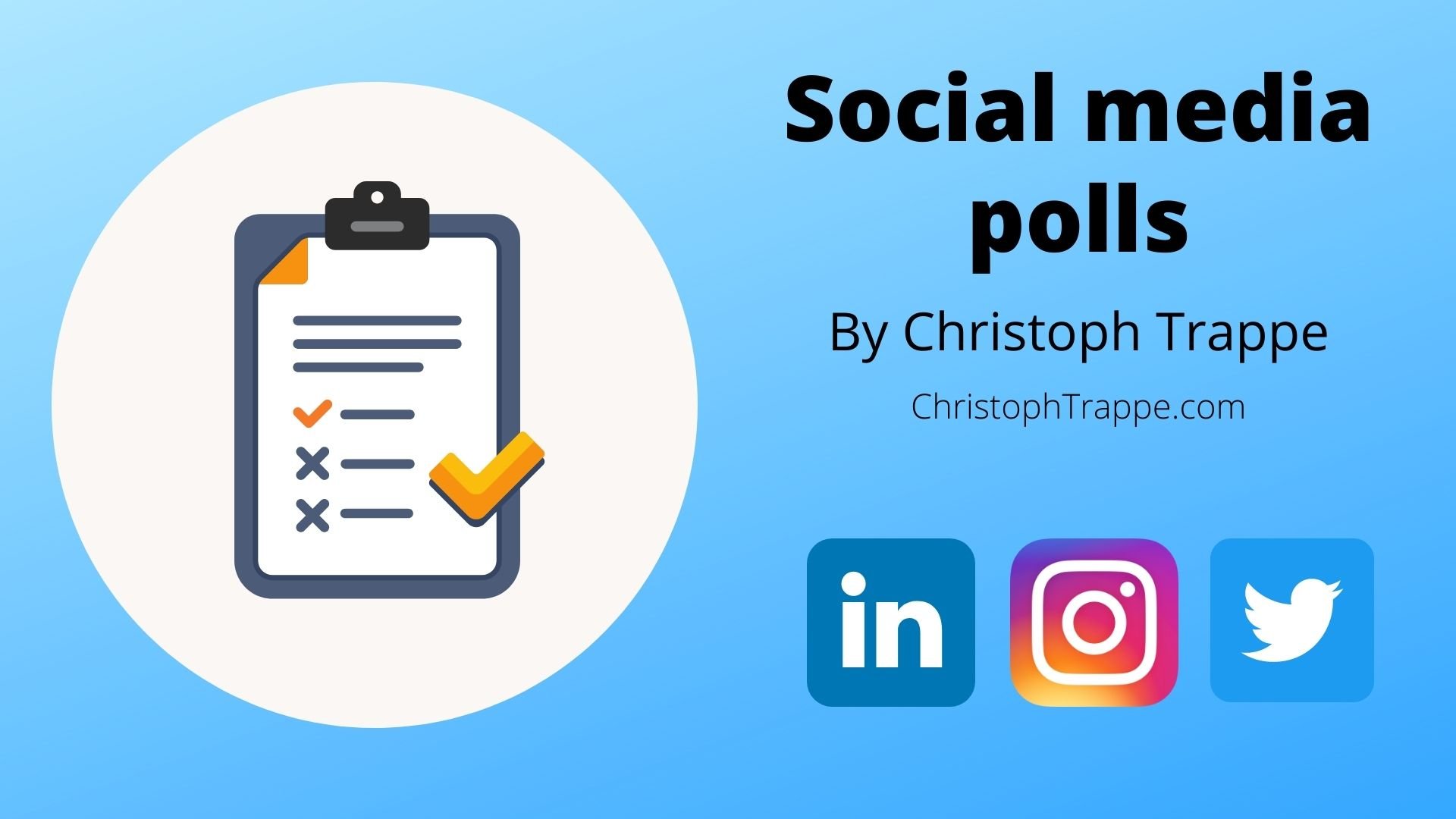Trappe Digital LLC may earn commissions from sponsored links and content. When you click and buy you also support us.
Responding to people that engage with you on social media certainly is a way to drive leads and that can include social media polls. Those polls can be found specifically in Instagram Stories and on LinkedIn. Polls are not just created to keep audience members busy. They can also be the start to a conversation with potential customers.
LinkedIn and Instagram both show to the author who has voted in the poll so it’s easy to send them a quick note of some kind. Them voting can indicate interest in what the brand or the topic is about.
In this article I discuss:
- Polls on LinkedIn, Instagram and Twitter
- How to respond to polls
- What to consider on when to use a poll
LinkedIn polls
LinkedIn polls are created directly in your feed and the poster can see how each person voted. Some polls also encourage others to leave a comment if their preferred answer is not listed. Leaving a comment of course will share the poll even farther.

To create a LinkedIn poll, simply go to your LinkedIn page and start creating a post and then set the post to become a poll. From there you can set the duration, add the question and the answers.

Instagram polls
Instagram polls can currently be created inside of Instagram Stories. Simply go to your story and create the post as you normally would and then add the poll from the features library.


Here’s how a poll looks.

Once people vote, they see the current tally.

Twitter polls
To create a Twitter poll, simply start a new tweet, and then click the bar graph graphic and create your poll.

 On Twitter, you can’t see who is responding to your social media poll so the responding strategy can’t be used there currently. But you could ask respondents to leave a comment explaining why they voted a certain way. Here’s how a finalized poll looks:
On Twitter, you can’t see who is responding to your social media poll so the responding strategy can’t be used there currently. But you could ask respondents to leave a comment explaining why they voted a certain way. Here’s how a finalized poll looks:

Types of follow-up messages to LinkedIn or Instagram polls

On the Instagram Stories backend, I can see who voted and which way they voted. So in this case, when they vote “Yes, but how” or “I need results” they are potentially even asking for help. I could message them with:
- What are you struggling with when it comes to results?
- What are the barriers currently to get results?
Then depending on how they respond and if they respond you can move the conversation forward. As far as I know, this cannot be automated (yet) on Instagram or LinkedIn and an actual person has to respond.
Read next: What is conversational marketing?
On LinkedIn, it’s similar. You can see who responded and then can follow up with a message.
On Instagram, you can send:
- Short videos (save to your camera roll first – you could have a reply that you use for multiple people. Just don’t say their name.)
- Written message
- Voice message
On LinkedIn, you can send:
- Written message
- Voice messages
Sending a voice message as I previously mentioned in this article can help you stand out as well.
Personalized video messages can also be a differentiator on Instagram.
Is it a good idea to respond to social media polls?
Yes, as long as you aren’t being overly pushy and when people don’t reply don’t send a snarky message. “Hey. Ignoring me?” Or something else that is rude and unnecessary. But responding in a meaningful way can help you build and deepen that relationship.
On this live stream of the Business Storytelling Podcast, Kate Bradley Chernis discussed responding to social media engagement as a sales strategy that is was less annoying than a cold call.
“When people engage with us on social media, we consider them a warm lead,” she said.
Read next: How to build relationships in the digital age … for business acceleration
For all of these networks and all these cases, just keep it conversational, helpful and don’t sell too quickly. If a poll is related to a business problem and people respond it’s likely that they at least are open to discussing how the problem can be solved.
This is worth trying in B2B as well. With so many stakeholders and influencers on projects why not add relevant touchpoints? This is just one more – especially when you or the brand are connected to them on those social networks.
Read next: Personal branding tips to help you stand out from the crowd


